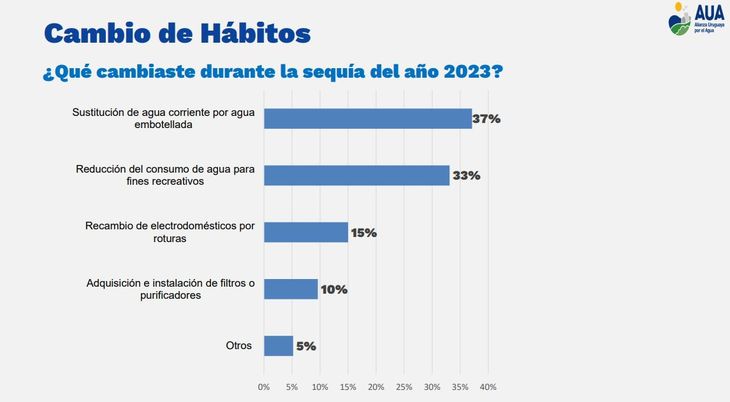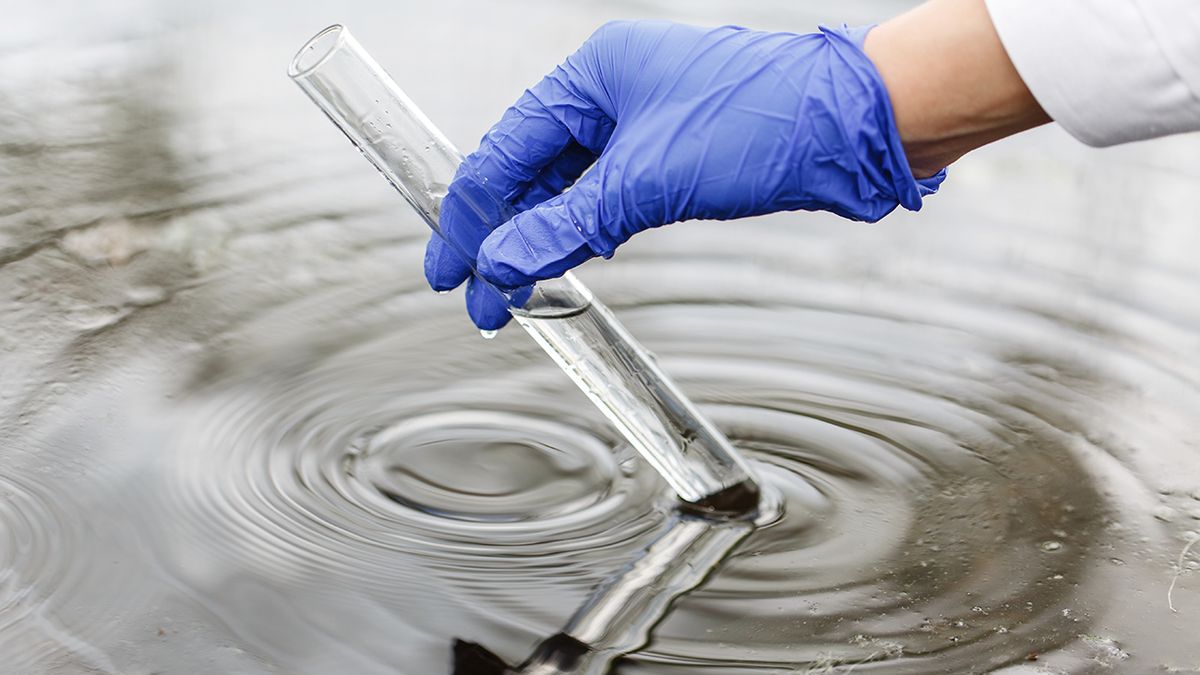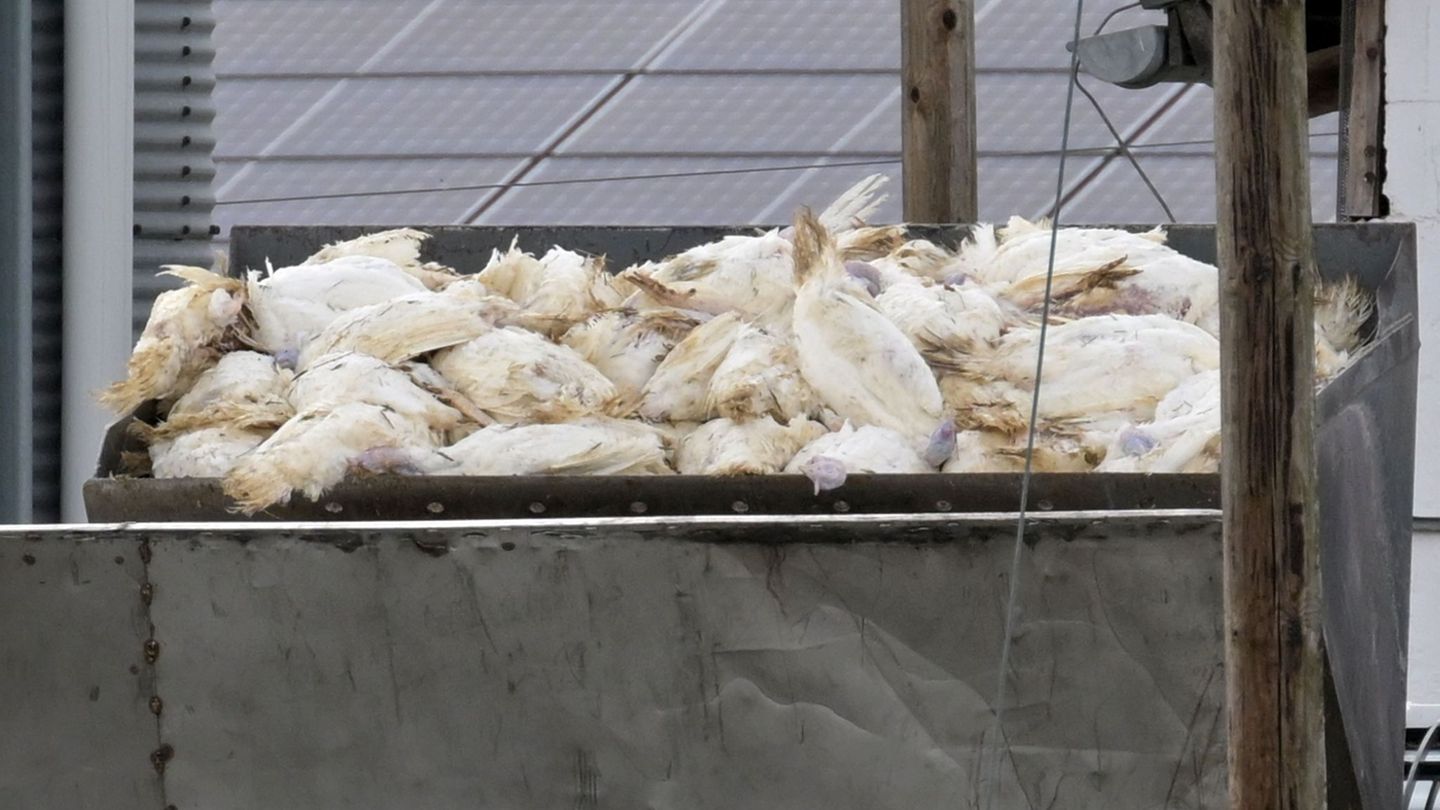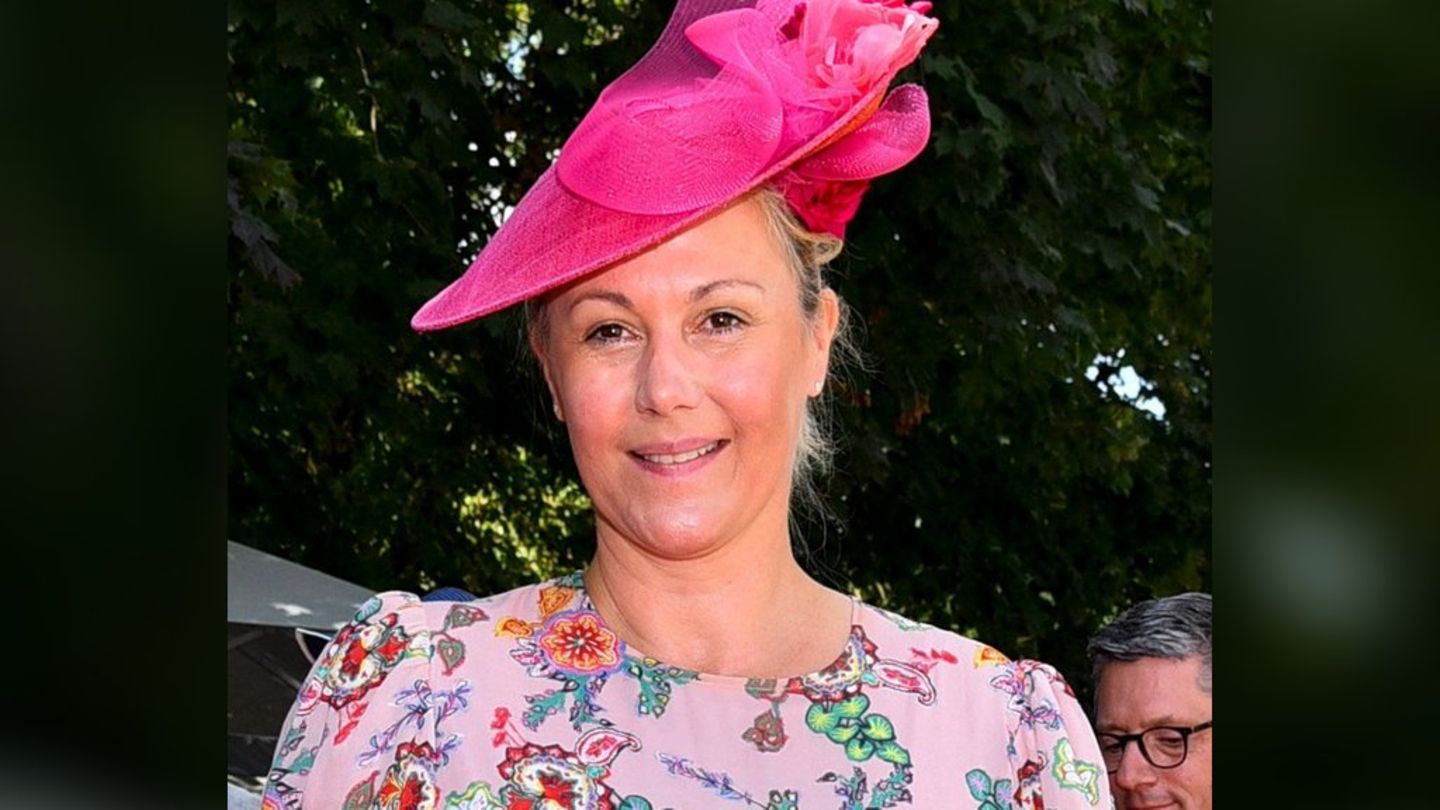A survey carried out by the group of private companies Alliance for Water shed important data on the perspective of the Uruguayan population on the topic of water, its consumption and coexistence with this natural resource.
The survey, the results of which were presented within the framework of the forum Sustainable Uruguaywas carried out online during the month of May and involved 1,789 cases where we sought to know people’s perception of the water security.
One of the most important questions is about water quality, where most of those surveyed respond that what worries them most is the drinking water quality (45%) and the existence of pollution by plastic products in waterways. Also appearing, although to a lesser degree, are aspects such as lack of sanitation, cyanobacteria and other types of pollution.
The survey shows, however, that more than 47% trust drinking or “tap” water, although 53% say they consume bottled water and 22% boiled or filtered tap water.
Another important piece of information about the work carried out by the Uruguayan Alliance for Water to which it accessed Ambit is that 60% of those consulted do not believe that it is necessary to reduce their consumption of drinking water. “That caught our attention. “People don’t believe they are being efficient, but at the same time they think they shouldn’t change any of their habits,” he said. Mauro de la Vegaexecutive director of the Alliance.
“These are data that caught our attention, and that are somewhat in line with what we also asked about whether they believe that the issue is treated in the media as it should be and 68% said no. So, the subject is not talked about, they have no knowledge, the answers are that ‘I am doing things well because I don’t know what it would be like otherwise’, and this shows that an important culture is missing,” he added.
Water plate 2.jpeg
Drought and water crisis
Respondents were also asked if they consider that a water crisis like last year. Half of those surveyed consider it “very likely” that this will happen in the next five years.
Another important fact is that 77% rated the drought as a “very relevant” event due to which they changed part of their habits, with 32% incorporating bottled water into their purchases, 30% having to stop using water for recreational purposes and 15% replacing their water heaters with different breakdowns.
In addition, approximately 14% suffered a flood event in the last year, a significant number especially in interior departments of Uruguay.
Water plate.jpeg

Pay more for better service?
De La Vega highlighted that 59% of those consulted said they were willing to pay a SBI fee most important in water services, between 10 to 30% more, to have higher quality.
It was also asked if she would be willing to pay a greater amount of money in taxes to improve the conditions of the department and have a adequate river drainage, resulting in 60% with a positive response, which is even higher in those under 40 years of age.
La Niña and its possible impact in Uruguay
consulted by Ambit about the possibility that The girl, scheduled for the second half of the year, may again produce some effect of drought and therefore on the quality of the water, De La Vega commented that they had meetings with people from Inumet and of Ministry of Livestock by the early warning system. “We believe it is a good opportunity to reposition the issue of water. We may think that something similar is going to happen and we all have to work, civil society, the public sector, the private sector, to raise awareness and generate changes,” he reflected.
The specialist reported that many of the companies that accompany the Uruguayan Alliance for Water were impacted by the water crisis. “They ran out of water, there were productive processes stopped, people were on unemployment insurance. So, we all have to work along those lines,” he said.
“Investments like Neptune project Work is beginning and alternatives to the consumption of Paso Severino and the Santa Lucía are being generated. But it’s going to take time. In terms of infrastructure we are at the same level, but I attest that in the public sector they are working on a protocol of drought, in case a similar situation returns. Things have been done,” he stated.
Source: Ambito




